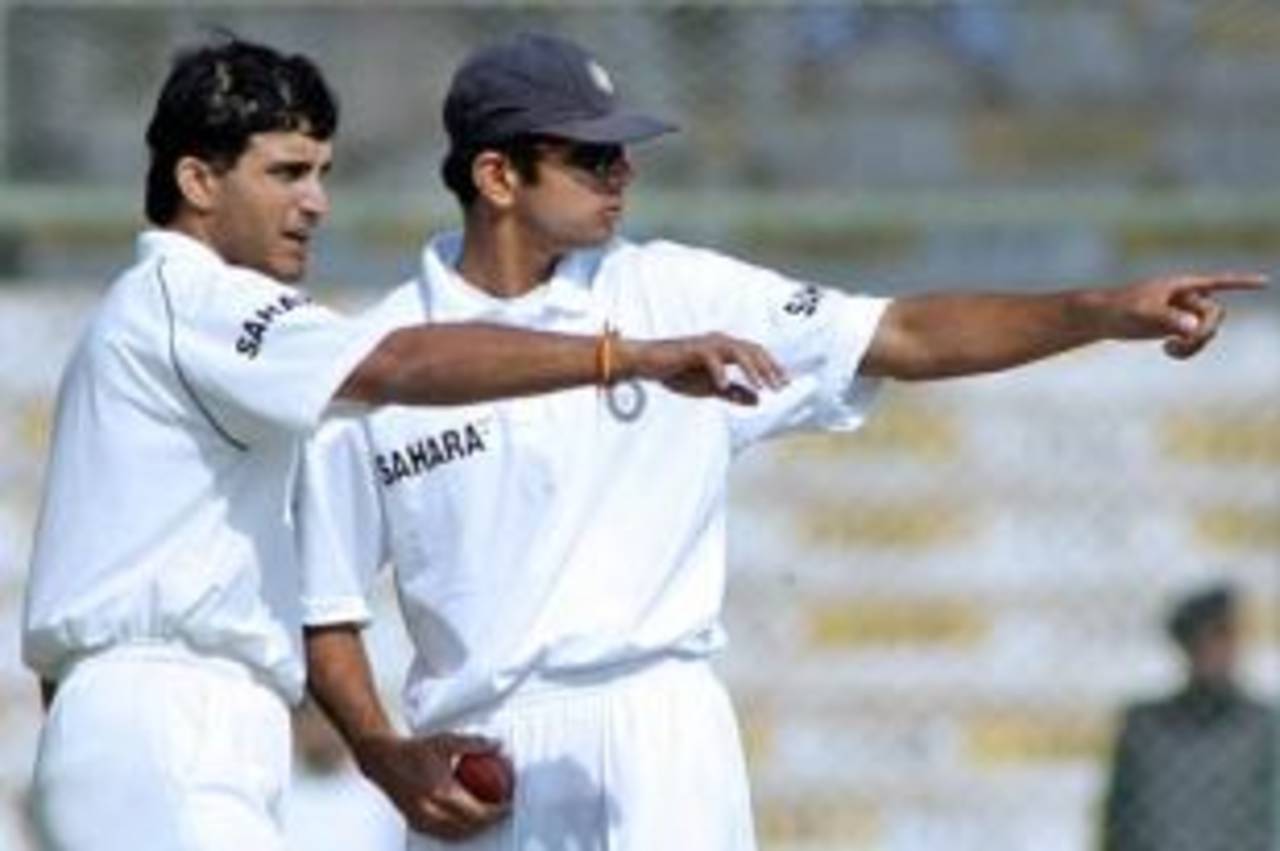One man's instinct, or a vote?
Dileep Premachandran
Mar 26, 2009, 11:38 AM

Just don't expect Sourav Ganguly, who won 21 of his 49 Tests and led India to a World Cup final to buy into this new experiment • Aamir Qureshi/AFP
Leadership means different things to different sports. In football, the
captain's armband is more a sign of recognition than an acknowledgement of
tactical nous. When people talk of the immortal Brazilians of 1970, they
talk of Pele and Jairzinho, Gerson and Tostao. If they do mention Carlos
Alberto, it's for the rocket into the Italian net, and not his leadership.
Cricket couldn't be more different. When we speak of the great sides,
they're almost always prefaced by the captain's name. Warwick Armstrong's
Australians of 1920-21. The Don's legendary team of 1948. Ian Chappell's Ugly Australians. Clive Lloyd's Calypso Men. Mark Taylor's new-age
Aussies. You can't separate the team from the leader, the victorious
campaigns from the men who made the crucial calls.
After American Football, where the quarterback reigns supreme, in no other
sport does the captain exert the same level of influence. So, when John Buchanan, acknowledged as one of the great coaching brains of our age, comes out and says that it doesn't really matter who leads a team, people
will sit up and take notice. More so when the man being marginalised as a result of the new theory is the most successful captain that India has ever had.
"It could actually be of benefit to someone like him because it could free
him up for his batting, when he just needs to do his batting or for his
fielding when he just needs to do his fielding or when he needs to just do
his bowling without the burden of the 20-over format on his
shoulders," said Buchanan when asked about Sourav Ganguly not being given
the Kolkata Knight Riders captaincy for the second season of the IPL. "The laws of the game state that you need a captain for certain formal roles, such as the coin toss, but that
aside, I see there is scope to challenge the way teams have been run in
the past."
His idea of collective leadership has already drawn an incredulous
response from Mickey Arthur, who has plotted South Africa's rise to the
top of the world game in conjunction with Graeme Smith. Ganguly himself
didn't appear best pleased with the idea, saying: "Tomorrow I can jump out
and say we need four batting coaches, four John Buchanans and Shah Rukh
Khan [the team owner] can say we need six Andy Bichels. These are all
opinions, these are the ways they are thinking Twenty20 cricket can be
played. We'll have to wait and see because it's completely new, it has
never happened in sports."
| Even in this era of coaches, the one consistent line has been that the captain has the final word once the team crossed the rope on to the field of play. Does a coach sitting on the sidelines really have a better feel for what's going on in the middle? | |||
One of Buchanan's more strident critics, Shane Warne, might also have a
thing or two to say about this latest theory. The story of last season's
IPL was the story of the Rajasthan Royals, the basement-dwelling
candidates who went on to be champions. Warne was captain and coach, and
the inspiration behind a less-than-star-studded side punching way above
its weight. He made household names of the likes of Yusuf Pathan and
Ravindra Jadeja, while Sohail Tanvir and Shane Watson finished up as the
stars of the tournament.
Try telling those men that Warne didn't matter, that it could just as
easily have been Mohammad Kaif or Kamran Akmal leading the side. The team
that lost to the Royals in a thrilling final was no different. MS Dhoni's
composed style of leadership helped the Chennai Super Kings recover from a
mid-season slump, and nearly repeat his feats with India's Twenty20 team
less than a year earlier.
There's a tendency to denigrate the twenty-over game as hit-and-giggle and
little else, but for the captains, the margin for error is infinitesimally
small. One bad over, and the game could be finished. In a Test match, you
can have one poor session and still come back to wrest the game away. In
Twenty20, there are seldom any second chances.
Arthur spoke of the players getting mixed signals, and that's the biggest
problem with this Politburo model of captaincy. Who has the final say?
Even in this era of coaches, the one consistent line has been that the
captain has the final word once the team crossed the rope on to the field
of play. Does a coach sitting on the sidelines really have a better feel
for what's going on in the middle? And if there are four or five "leaders"
on the field, who makes the crunch calls? Instead of relying on one man's
instinct, do you put it to a vote?
As with any experiment, it can't be rubbished without giving it a fair go.
Just don't expect Warne or Dhoni to buy into it. Ganguly, who won 21 of
his 49 Tests and led India to a World Cup final, probably won't either.
Dileep Premachandran is an associate editor at Cricinfo